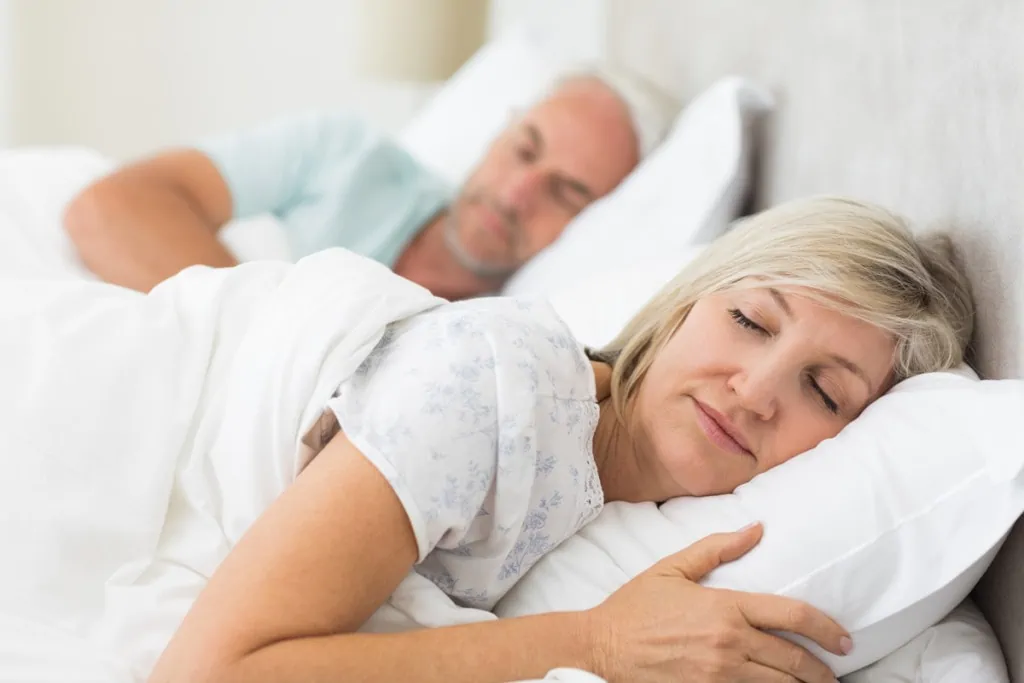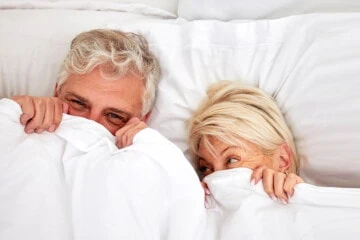
As we age, reaching the required 7-9 hours of sleep per night becomes more difficult. Older adults spend less time in deeper stages of sleep with increased insomnia, chronic illness, and other disorders associated with age. They also tend to take more medications than younger people, which also causes disturbances in sleep.
The risk of Obstructive Sleep Apnea (OSA) also increases with age, with up to 32% of people in this age group being diagnosed. There are many reasons associated with this increase. As we get older, we lose the muscle tone that can prevent obstructions that keep our airways open. The symptoms of OSA in older people are sometimes confused with the impairments of ageing, such as poor sleep, cognitive dysfunction, and increased cardiovascular risks. As we age we often ignore frequent fatigue and assume it to be a fact of life of getting older. Many people with Obstructive Sleep Apnea (OSA) don’t associate their grogginess, lack of energy or difficulty concentrating may be caused by frequent hypoxia and awakenings experienced at night while sleeping. This is why it is important to use CPAP machines to monitor your sleep as these machines provide detailed reports on your sleep therapy.
Postmenopausal women not on hormone replacement therapy have a higher risk of developing sleep apnea, believed to be related to weight gain and hormonal changes. This is often attributed to depression, causing the diagnosis of OSA to take up to a decade longer than in men.
Treating sleep apnea becomes increasingly more important as we age. Sleep deficiency can greatly increase the risk of developing hypertension, cognitive decline, congestive heart failure, stroke, diabetes, and depression. These and other medical conditions are already at an elevated risk as we age. If you’ve recently been diagnosed with a new medical condition, there is a good chance it might be related to your lack of sleep. This is sometimes referred to as a “bidirectional relationship,” as individuals with other medical conditions are at a greater risk of developing sleep disorders.
There is also a connection between sleep deprivation and Alzheimer’s disease or dementia, as the disruption of sleep architecture combined with intermittent hypoxia and cardiovascular comorbidities cause symptoms to worsen over time. Treating and optimizing our sleep patterns produces a noticeable improvement in memory functions. Making simple lifestyle changes and improving sleep hygiene, this will have the potential to serve as primary prevention strategies for dementia and Alzheimer’s disease. These sleep tips can also be a great help.
While sleep is an important aspect of physical health, as you age, it can be of greater importance. Untreated obstructive sleep apnea can result in heart failure, obesity, heart attack and stroke, leading to a 20% reduction in life expectancy. It’s time to focus now on your retirement health, so you are able to fully enjoy your “Golden Years” with your grandchildren.
The dream team at Snore MD prides themselves on providing exceptional education to their patients, and if you have any questions on how to improve your sleep hygiene, please reach out to your local office, and they would be happy to assist you.




